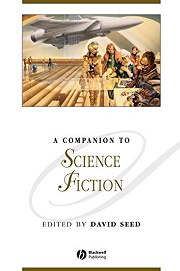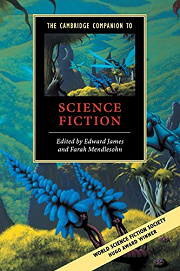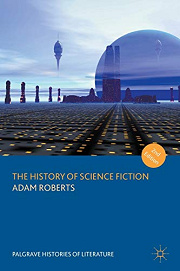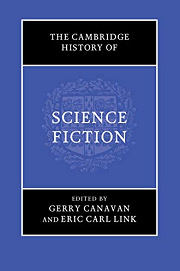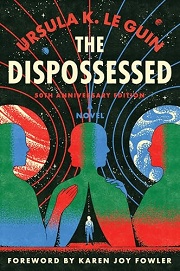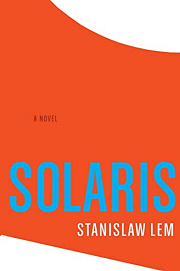Share your thoughts in a quick Shelf Talk!
A Companion to Science Fiction by David Seed
Travel from the roots of speculative storytelling to its cutting-edge frontiers with scholars as your guides. Themes, histories, and essential authors are unpacked with clarity and depth. A Companion to Science Fiction is a comprehensive map for readers who want to explore the genre’s vast cosmos.
Have you read this book? Share what you liked (or didn’t), and we’ll use your answers to recommend your next favorite read!
Love A Companion to Science Fiction but not sure what to read next?
These picks are popular with readers who enjoyed this book. Complete a quick Shelf Talk to get recommendations made just for you! Warning: possible spoilers for A Companion to Science Fiction below.
In A Companion to Science Fiction, did you enjoy ...
... rigorous, idea-dense critical surveys and frameworks for understanding SF's evolution?
The Cambridge Companion to Science Fiction by Edward James and Farah Mendlesohn
If you loved how A Companion to Science Fiction unpacked cyberpunk alongside utopias and traced lines from Wells’s scientific romances to late‑20th‑century innovations, this volume gives you another set of sharp, accessible essays to chew on. It offers clear theoretical frameworks—much like the Companion’s sections on the New Wave and feminist SF—so you can connect authors such as Le Guin and Gibson to bigger conversations about the genre’s history and purpose.
... a sweeping, chronological history of the genre spanning from early scientific romances to the twenty-first century?
The History of Science Fiction by Adam Roberts
You enjoyed the panoramic sweep in A Companion to Science Fiction—moving from Wells and Verne through space opera, time travel, and cyberpunk. Roberts gives you that same breadth in a single, cohesive narrative, showing how traditions discussed in the Companion (utopias/dystopias, the rise of New Wave experimentation, the impact of cyberpunk) interlock across centuries.
... many voices in dialogue—scholars offering contrasting takes on subgenres, themes, and national traditions?
The Cambridge History of Science Fiction by Gerry Canavan and Eric Carl Link
If what grabbed you in A Companion to Science Fiction was hearing different experts illuminate everything from time travel to feminist and postcolonial SF, this multi‑author history doubles down on that chorus of perspectives. You’ll get chapters that speak to each other—just like the Companion’s essays on cyberpunk or utopia—so you can triangulate ideas across periods and traditions.
... the emphasis on sociological thought experiments and worldbuilding ethics (e.g., the utopias/dystopias chapters)?
The Dispossessed by Ursula K. Le Guin
The Companion’s explorations of utopia, anarchism, and feminist SF likely sent you back to Le Guin. The Dispossessed is the purest distillation of those themes: Shevek’s bid to bridge Anarres and Urras embodies the same sociological inquiry the Companion highlights, turning debates about freedom, scarcity, and institutions into a living, breathing story.
... philosophical inquiry into identity, knowledge, and the limits of understanding in SF?
Solaris by Stanislaw Lem
If you appreciated the Companion’s essays on alien contact and epistemology—why we so often fail to understand the Other—Solaris is essential. Kris Kelvin’s encounters with the ocean’s “visitors” stage the very questions your Companion raised about cognition, memory, and the ethics of knowledge, delivering them through a haunting, idea‑rich narrative.
Unlock your personalized book recommendations! Just take a quick Shelf Talk for A Companion to Science Fiction by David Seed. It’s only a few questions and takes less than a minute.
